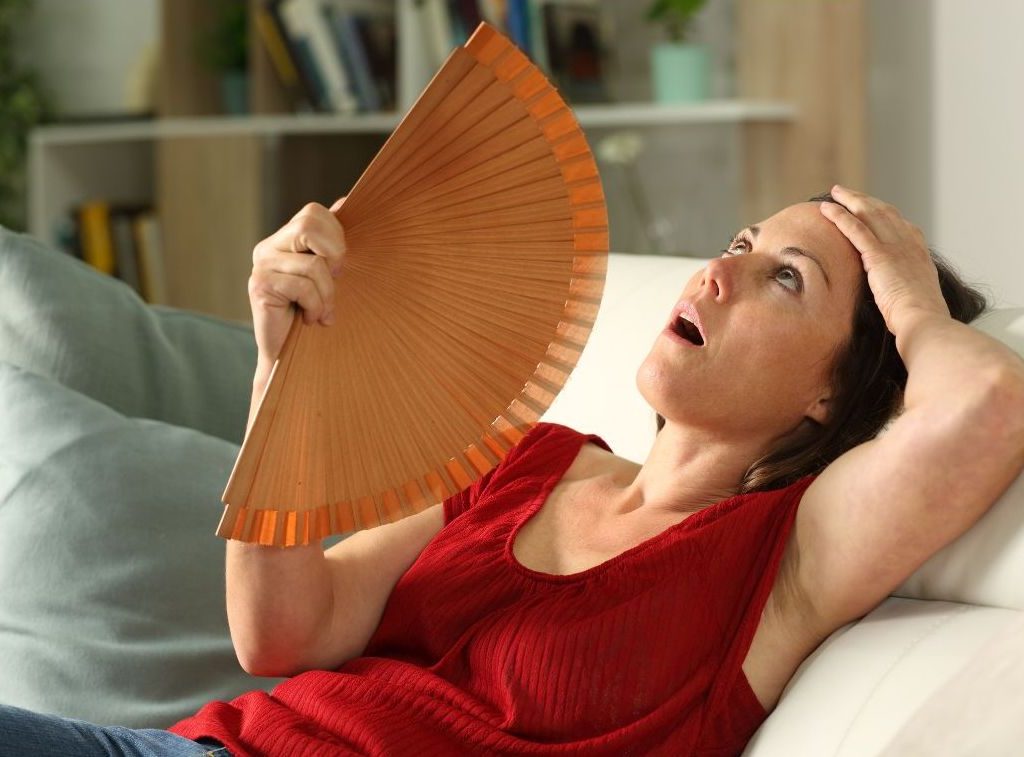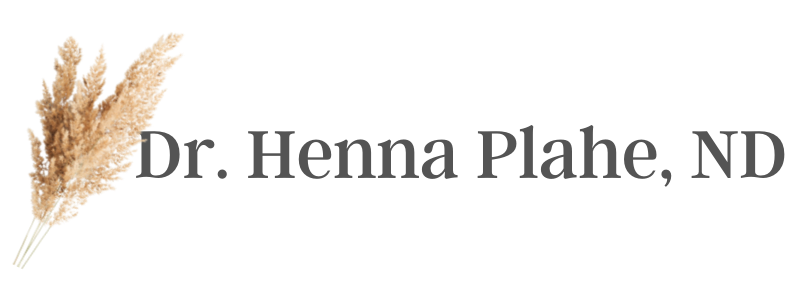Perimenopause is a natural transition – a life stage all menstruating women will face. It happens to us all,
but we don’t discuss it as much as we should! Knowledge is power – the more we know about our
bodies and the changes we face, the better equipped we’ll be to minimize symptoms of perimenopause.
So how do you know when it’s starting for you?

Symptoms of Perimenopause
The symptoms of perimenopause are varied and different for every woman. Many women begin the
transition in their 40s, while others start as early as 30. The stage will last months for some, while ot
will take years to reach menopause officially.
The intensity of the symptoms also varies, from slightly bothersome to negatively affecting the quality of
life. Know that you don’t need to suffer! Many life changes, supplements, and treatments are available
to make the transition smoother.
15 signs that can signal perimenopause:
- Changing periods – One of the most significant indicators of perimenopause is changing periods. Some women will have heavier flow, skip periods, or have irregular cycles. See one of my previous blog posts about Perfect Periods here
- Hot flashes & night sweats – Many women are hit with heat waves, flushing and sweating, ranging from slight warmth to waking up dripping in sweat.
- Body & weight changes – Less estrogen can lead to muscle loss and make it challenging to lose weight.
- Mood changes – Fluctuating hormones can lead to feelings of sadness and irritability. Add insomnia, hot flashes, and heavy periods to that, and who wouldn’t feel upset?
- Hair growth in odd places – Do you get that one long hair you have to pluck from your chin? With less estrogen and progesterone in your system, androgens rise, leading to hair in unusual places like your face, chest and back.
- Insomnia – Progesterone affects our sleep, so declining levels can lead to insomnia. Hot flashes, night sweats and anxiety can also wake you up in the middle of the night.
- Vaginal dryness & painful intercourse – Dropping estrogen levels can lead to thinner, drier vaginal tissue, causing uncomfortable intercourse and declining sexual desire.
- Fatigue – Feeling drained during the day is another common symptom of perimenopause (although there may be other explanations as well).
- Body odour changes – Another fun one! Some women report increased body odour as hormones
fluctuate, thanks to increased testosterone levels. - Brittle nails & thinning hair – Estrogen helps our skin and hair retain moisture and signals our bodies to make collagen. When levels drop, it can lead to dry, brittle nails and thinning hair.
- Migraines – During perimenopause, hormone levels fluctuate intensely, leading to migraines. The good news? Many women find that once they enter menopause, they have fewer migraines!
- Anxiety & depression – The same hormones that control your cycle also prevent the release of
serotonin. When those levels fall, it can increase sadness, anxiety, and clinical depression. - Urinary changes – Hormonal changes also affect the muscles in your pelvic region. If these weaken, you may have issues with incontinence.
- Acne & skin changes – Changes and hormonal imbalances mess with our skin’s natural defences, causing problems such as acne, dry skin, rosacea and eczema.
The symptoms of perimenopause don’t sound fun, but you don’t have to suffer! Just because something
is considered ‘normal’ does not mean it is ideal. Underlying issues such as thyroid problems, hormone
imbalance, or insulin resistance can make symptoms worse than they need to be. The more you know
about your body and the changes happening, the better you’ll be able to minimize signs of
perimenopause.
If you are struggling with any of these signs, please see your health care provider. If you are looking to work with Dr. Henna, ND for these issues, you can book your initial visit here

